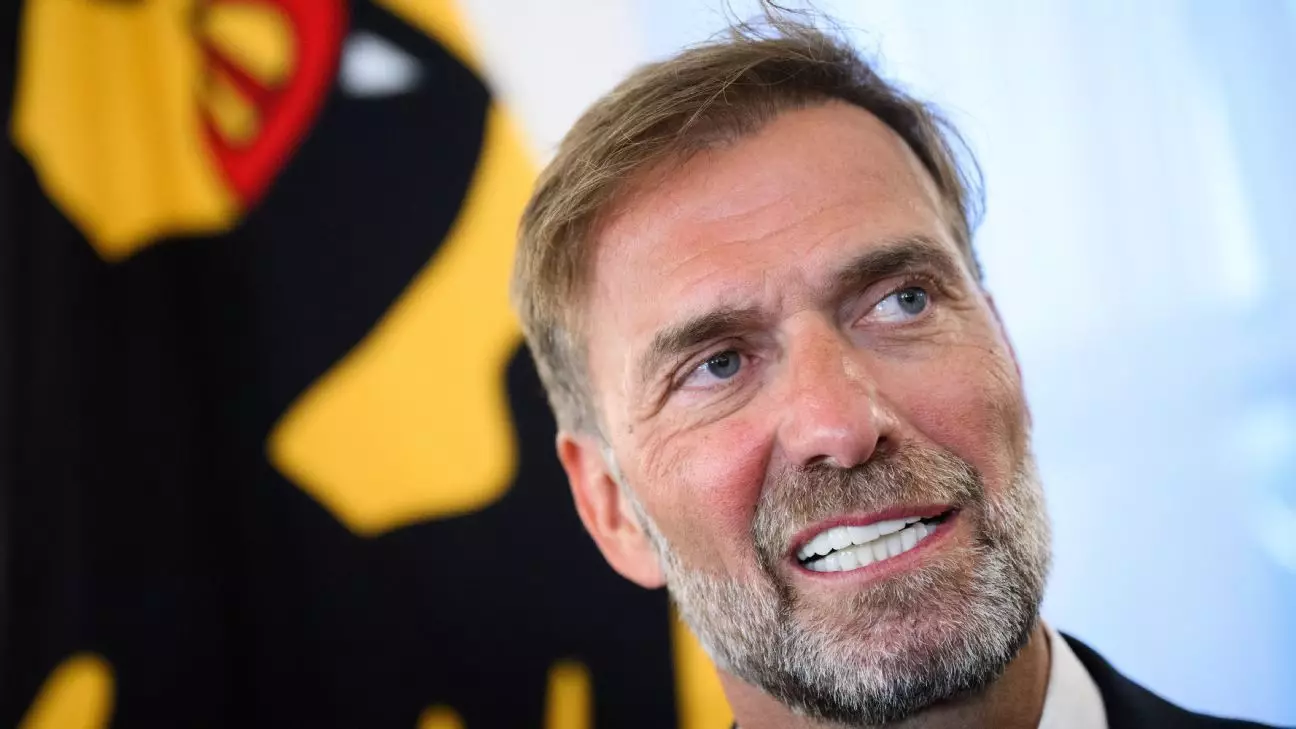In the ever-evolving landscape of professional football, decisions made by coaches and managers can reverberate beyond the pitch, igniting passionate reactions from fans and stakeholders alike. This scenario has unfolded dramatically for Jürgen Klopp, the esteemed manager formerly associated with Liverpool FC. His upcoming appointment as the head of global football for the Red Bull organization has stirred a significant backlash, particularly from supporters of his former clubs in Germany. The complexities surrounding this move invite a deeper analysis of its implications for Klopp himself, the fans, and the broader football community.
In a recent interview with Toni Kroos, Klopp expressed his intentions behind joining Red Bull, emphasizing a desire to avoid upsetting anyone affiliated with his legacy clubs. The sentiment behind his words reflects a genuine concern for the emotional ties that fans have to their teams. Klopp noted, “I didn’t want to step on anybody’s toes, definitely not, and personally I love all of my ex-clubs.” Herein lies a key tension: how does one reconcile career ambitions with the loyalties ingrained in sporting affiliations? While Klopp’s respect for his former teams is admirable, the nature of professional sports often mandates that loyalty is tested in the face of career advancement.
Moreover, the leap from Liverpool to a corporate entity like Red Bull is not merely a job change; it signifies a shift towards an organization that many fans in Germany view with skepticism. The presence of Red Bull, particularly with its team RB Leipzig, has sparked resentment among traditionalists who perceive this move as a disruption to the sanctity of football’s competitive spirit.
The reaction from fans has been swift and piercing. Supporters of Borussia Dortmund, where Klopp achieved significant triumph, voiced their disapproval, deeming his new role as a betrayal. Meanwhile, Mainz fans took to their banners, questioning his judgment and labeling him as “crazy” for his decision to affiliate with a brand that many believe prioritizes commercial interests over genuine sporting heritage. This scenario highlights a profound disconnection between a coach’s career choices and fan expectations; it illustrates how deeply personal and intertwined these emotions are within the realm of football loyalty.
Such reactions exemplify the struggles faced by professional athletes who often find their career paths at odds with the passionate sentiments of their fanbases. The disappointment exhibited may not only be directed at Klopp as an individual, but also reflects a broader discontent with football’s commercialization. Fans often rally behind the emotional narratives of their teams, and when a beloved figure crosses into a corporate landscape, it can be perceived as a fundamental shift that erodes the romantic ideals associated with the sport.
Despite the backlash, Klopp presents a different narrative on Red Bull’s involvement in football. He suggests that the organization has been pivotal in reviving top-tier football in Eastern Germany through the Leipzig project. His perspective introduces a nuanced view of the corporate entity; instead of merely a disruptive force, Red Bull can be seen as a catalyst for change and investment in areas previously overlooked in the football landscape. This complex relationship raises questions about the role of money in football and whether it can be harnessed to elevate the game without undermining its foundations.
For Klopp, this role is not merely about managing a brand but rather providing advisory support to football clubs backed by Red Bull. He emphasizes the isolation experienced by coaches and positions his new role as a way to mitigate this loneliness—a poignant recognition of the mental health challenges managers face in high-pressure environments.
Klopp’s decision to assume this role comes amidst his statements regarding needing a ‘long break’ post-Liverpool. With the weight of expectations surrounding his name and legacy, the question remains whether this new chapter will enhance his career or cloud it with controversy. At 57, Klopp perceives himself still capable of contributing; however, the nature of this contribution raises brows among fans who question the integrity of a beloved manager switching allegiances.
Jürgen Klopp’s forthcoming position with Red Bull encapsulates the intertwined complexities of modern football—balancing personal career ambitions against deep-rooted fan loyalties and the growing influence of commercial entities. Klopp’s challenge lies in navigating this intricacy, potentially redefining his role within the sport whilst assessing the evolving dynamics of football in a corporate world. The outcome will undoubtedly shape not just his legacy but also the ongoing discourse around the commercialization of football.

